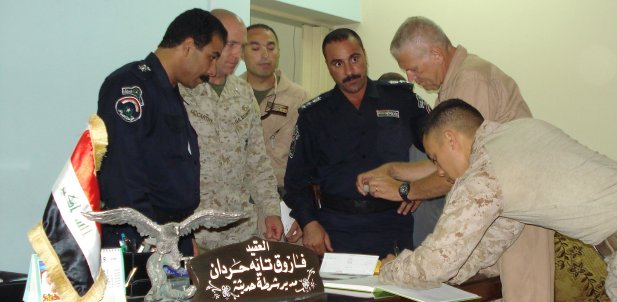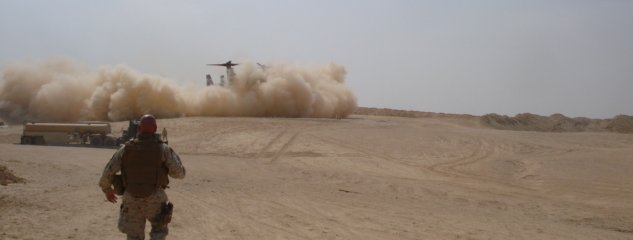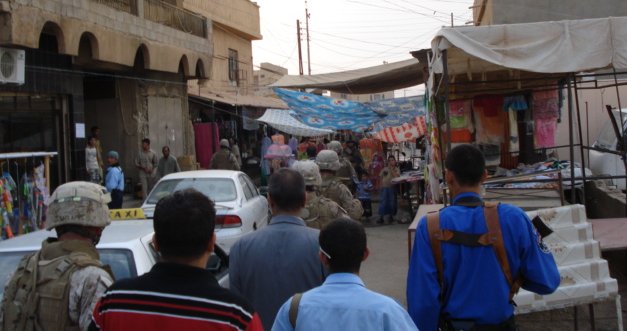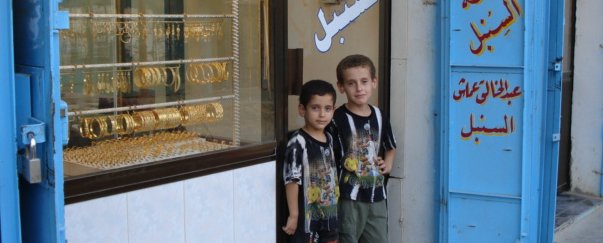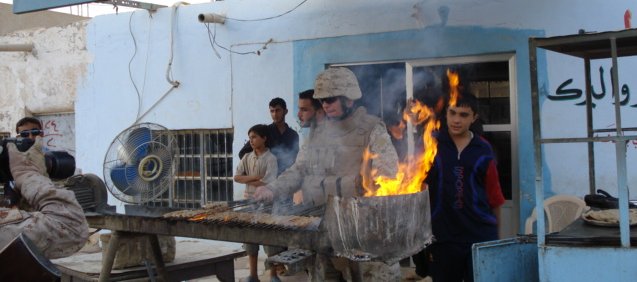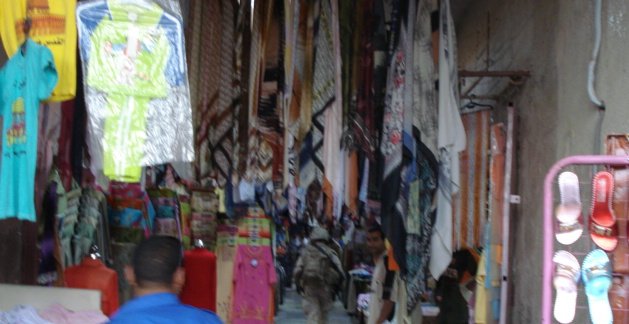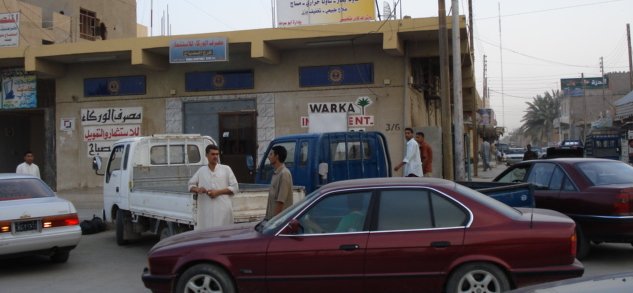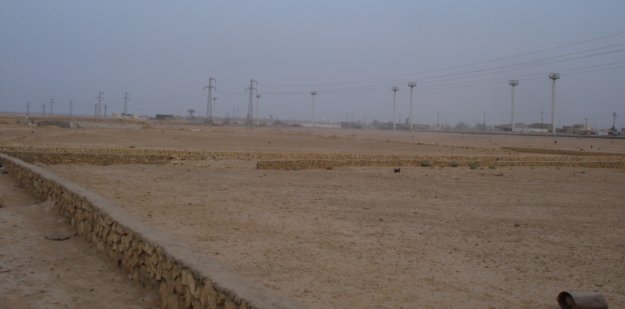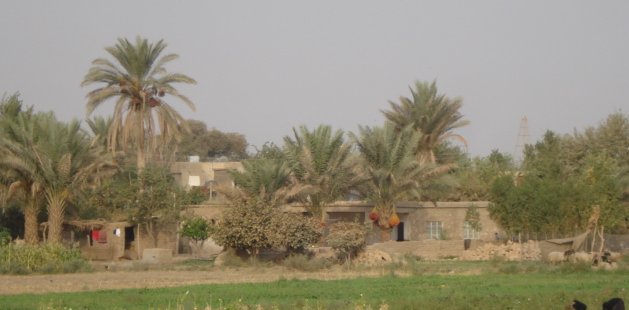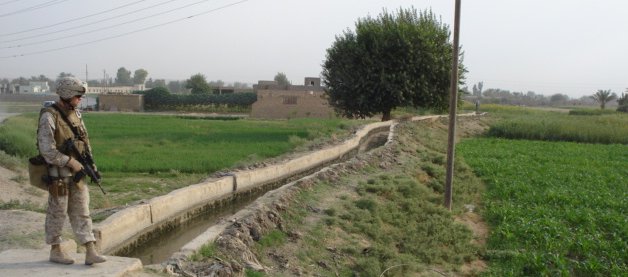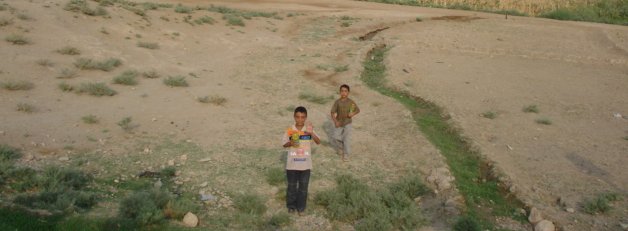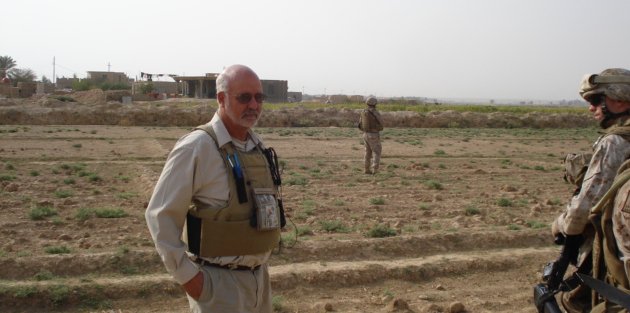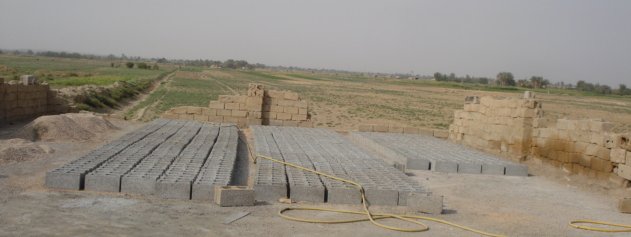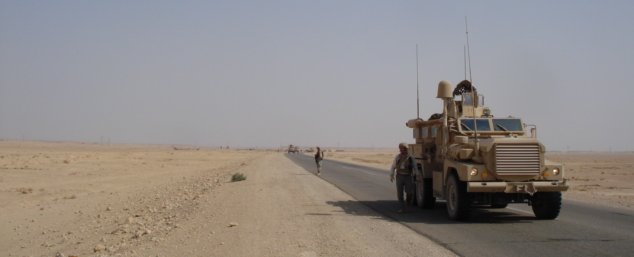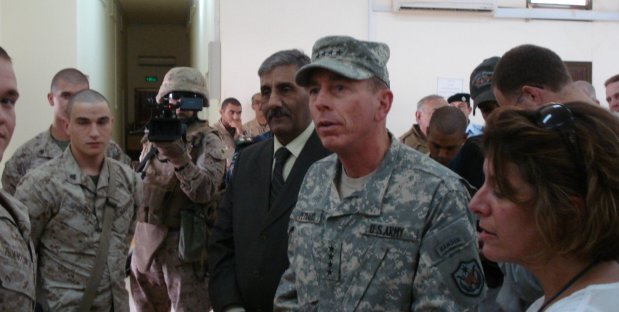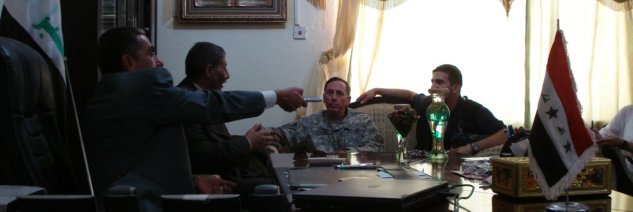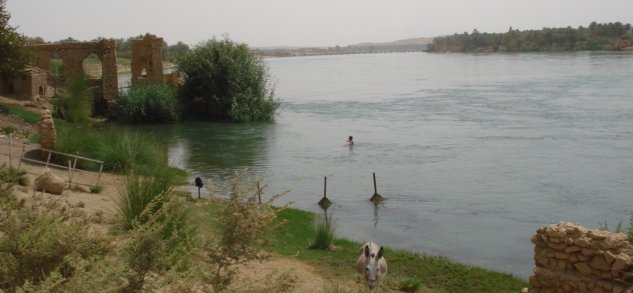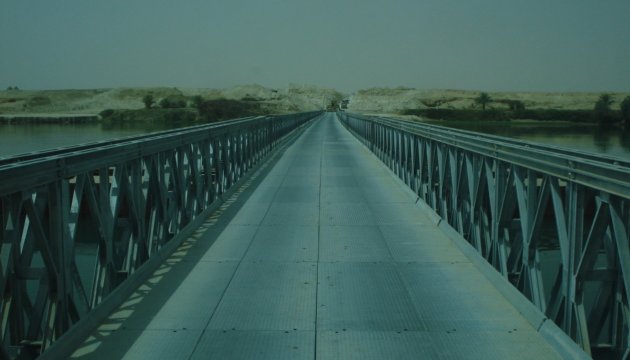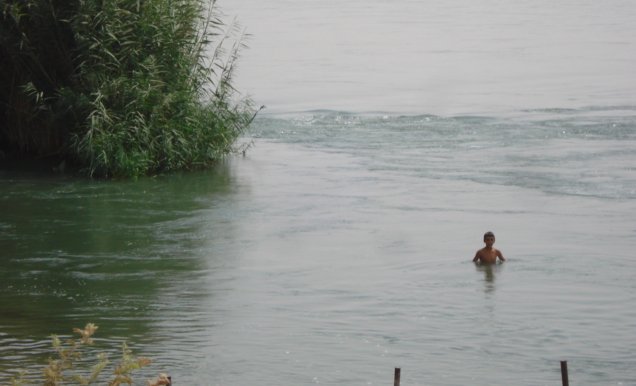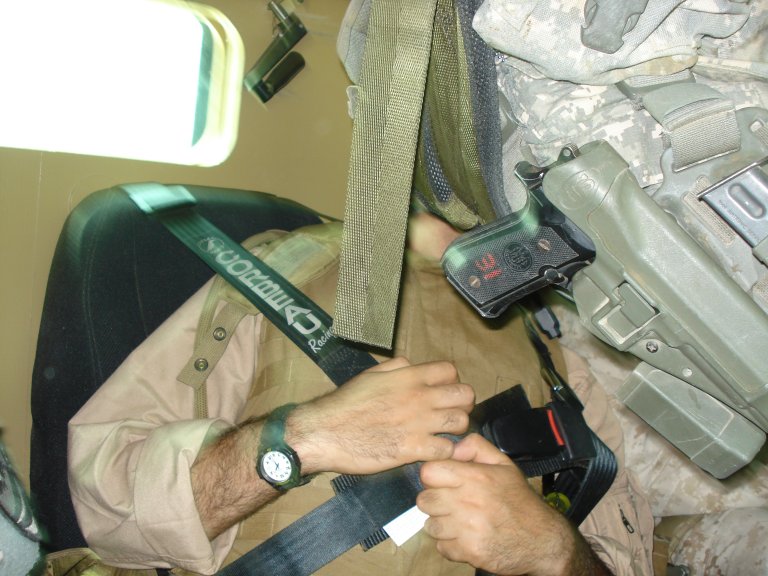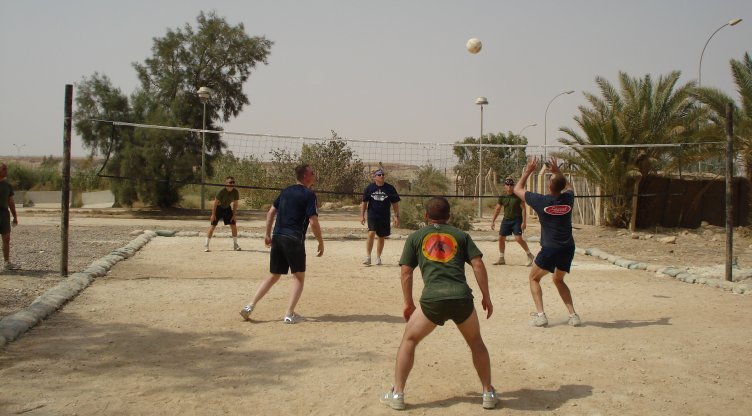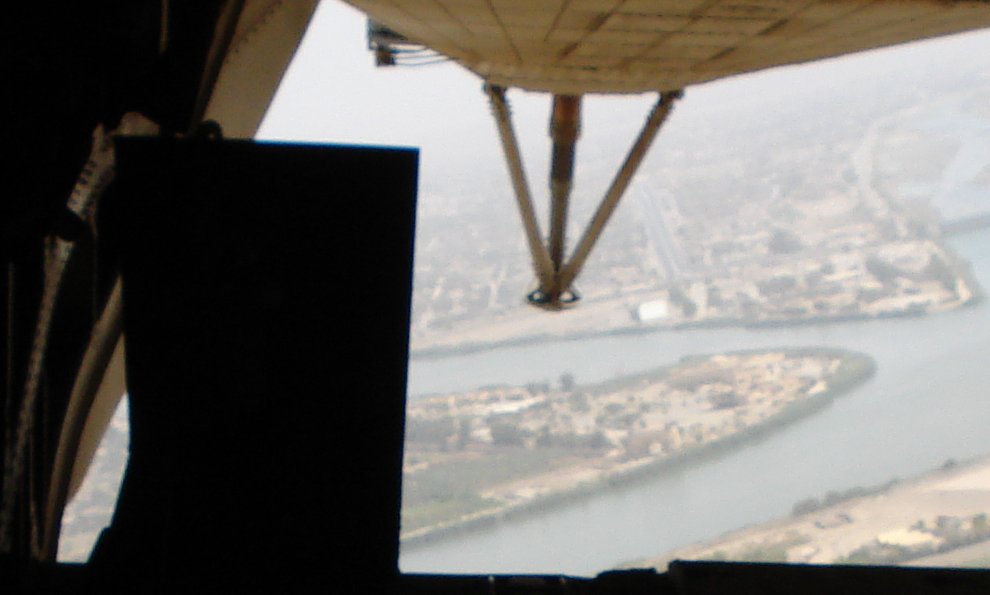Sometimes you cannot see the forest for the trees and it might be that I am too close to the situation. My information comes from talking to people and walking in Anbar. I report what I see and what I believe to be true. The caveat to my information is that it is raw material. The people with the big brains can check and aggregate all the information they get from me and others to draw the big picture. Below is my assessment of progress in Western Anbar in September 2008.
Governance Governance has continued to improve. City councils are in place in all our major areas and all have received training from USG funded trainers. There are still significant differences among jurisdictions. In order of effectiveness, they are Al Qaim, Anah, Hadithah, Rutbah, Rawah and Hit. Rutbah has made the most impressive strides over the past period, but they started from a very low base. An unmistakably positive trend has been the flow of Iraqi money to projects. The Iraqis are now outspending us 5.5:1 and their trend is up while we are pulling back. Soon they will be responsible for virtually all the big money. The ePRT can play hardball with local communities who demand too much, because we know that they have access to GoI funds if they just do the paperwork and go through the process. The presence of paperwork itself is a step forward, since bureaucracy is beginning to replace personal connections and visits by officials, who previously behaved like grand poobahs distributing public largess at and for their own pleasure.
Fuel delivery is meeting essential needs and has improved recently. I include this under governance with some regret, since this more properly belong in the private economy. It is government interference that is the biggest impediment to efficient fuel delivery, but as long as the state system is in place, we can report that it seems to be improving. As I wrote in the last assessment, the official price is too low compared with the fair market price and this central government administrative decision essentially preempts the establishment of legitimate private retail distribution of fuel.
Our ePRT, CA or IRD has sponsored projects to improve sewage and water infrastructure and more importantly Iraqi money is flowing. I could make the joke flowing down the sewer, but it is good that they are paying money and attention. There is significant improvement in Baghdadi, Kubaysah, Hit and Hadithah. Nevertheless, eating vegetables rinsed in local water remains an exciting game of probability. We usually win, but sometimes not. Reconciliation
Al Anbar never had a significant religious divide, as it is overwhelmingly Sunni. Local governments are seen as broadly representative of all groups. But individual government official are still concerned with their own narrow interests, or often those of their respective tribes. There are still occasional episodes of violence and intimidation, but less often.A big challenge has and will be returning detainees. While the numbers are not great (dozens per month, occasionally hundreds), they create serious disturbances. Most detainees evidently reach some accommodation and reconcile. If they are unable to reconcile, the problem is usually solved at the thirty-two day mark, with a drive into the desert where more people go out than come back, which creates tension in terms of rule of law (see below).
What I wrote in the last assessment remains true. This situation may have reached a steady state. Mass releases of detainees may cause blips. In general, however, the situation may improve incrementally but not dramatically since it accurately reflects long-standing local cultural and sociological preferences.Anbar is receiving a significant number of people displaced from other areas. We have no reliable measure of the numbers, but we see them whenever we travel. The city of Hadithah, for example, has increased in size by several miles out into the desert. People began arriving and setting up camps several months ago. Now they are gathering together rocks and building more permanent dwellings. We have been told that the local authorities are tolerating the influx and even helping them with land.
I would rate the reconciliation as performing, since it has reached a level that the local people consider acceptable and it is unlikely to change much into the near or medium-term future.Political Development
When I wrote the last assessment, I expected that the fall elections would solve many of the problems. I still think that may be the case, but the postponement of the elections not only postpones a solution, but makes a happy solution less likely. We have heard some, but not too significant grumbling about the postponement. Unfortunately, I believe that this represents more resignation than acceptance. Political development is essentially on hold.
As I wrote in my last assessment, political parties are attempting to operate w/o recourse to violence, but it is still difficult for party leaders to understand that they should not develop militias. The threat of violence against political parties is still real. Insurgents have made attempts to attack some party leaders and facilities. Sometimes it is unclear whether these are personal or local disputes or are specifically aimed at the political parties.I also observed in the last assessment that ordinary people seem to feel free to express their political ideas and preferences. When speaking with individual Iraqis on the streets, we are often surprised that when we tell them that they need to take matters to their local leaders, they tell us that they already have. I would add that this openness has continued but that the results the people are getting from leaders have improved little, but they are improving. Most of that improvement results from the increasing flow of money from GoI. I guess any problem that you can pay your way out of is not a problem, it is just an expense, but time will tell.
I really cannot rate this at the local level. Last time I said it was developing, with the condition of the election. That condition remains and bears more acutely. Economics
I have to divide economics into a variety of subgroups. Progress has been uneven over Western Anbar.Transportation
There are some excellent roads, but overall they are in bad condition and not sufficient to support the economic growth Western Anbar needs. Road building would entail considerable public investment, but is not difficult given the featureless topography and the ready supply of paving supplements. Asphalt factories are working in Anah and the Hadithah region and with the expected supply of pitch from K3, they should have enough stuff to black top all the roads in Al Anbar and then some.The rail network is largely intact and running in places. The railroad supports oil deliveries to the K3 refinery and will soon service the phosphate and cement plants in Al Qaim.
Oil pipelines are still not functioning. Although they suffered little war damage, they are easy prey to oil smugglers, who break into them along the route. This means not only that the stolen oil is a loss, but it does not help maintain pressure and usually creates spills and stoppages. This infrastructure problem depends more on security than economics.
Private SectorMarkets are usually well stocked. Electronic devices are easily available. Problems exist on the higher level of goods. For example, it is nearly impossible to get good truck and car parts.
The most salient development of the most recent period is the proliferation of cellular phones. These were recently rare, but are on the way to becoming ubiquitous. I think this is on an exponential growth path. We only started to notice them recently but the expansion is rapid.
Industrial / Manufacturing Expansion (including SOEs)The cement plant in Al Qaim has been “sold” in an arrangement with a Romanian management firms. We hear rumors that the phosphate operation may soon move into semi-private hands. K3 is running and supporting ancillary businesses, such as asphalt and paving. But there remain problems with getting medium sized plants working. People are waiting for the state run dinosaur firms to come back into production instead of creating new ones. There is a general problem with lack of investment capital. While Western Al Anbar will support agribusiness and some extractive industries, principally phosphate, borax etc., these things require significant up front investment.
Construction is booming in the Hadithah Triad and Al Qaim and to a lesser extend in other regions. This is more than a “dead cat bounce” and represents real progress. There are actual labor shortages in some of the skilled and semi-skilled trades related to construction.
EmploymentUnemployment remains high because labor quality is low. There are shortages of trained labor (see above) but much of the Western Anbar labor force is woefully unprepared for any kind of skilled work. There is a great demand for vocational training, and IRD, ePRT and CA have helped, but this is a long term problem. A more serious choke point will come when skilled workers at existing operations (such as K3 or the RR) retire. Iraq has not trained enough skilled workers for at least twenty years. That deficit is about to hit hard. The good news is that there will be many opportunities for skilled and ambitious young people, since there will be a shortage.
BankingWarka Bank has four ATMs in Al Qaim and others are expected soon. The people and leaders of Anbar are ready for banking, and some rightly decry its lack as a major impediment to growth. There is minor resistance to ATM and private banking because it will make skimming workers’ wages harder, but this should be overcome soon. The bad news is that state banks may never expand to satisfy demand. The good news is that this won’t matter if private banks such as Warka move in aggressively and are allowed to expand.
Rule of LawIP are officially committed to the rule of law and our visits (sometimes surprise) to their facilities indicate that they are pushing the idea of rights and legality down to the level of the individual officers. The police apply the laws in doing their duty most of the time, but we still hear complaints of corruptions or favoritism. Police usually have adequate tools, training and facilities to carry out their missions. What they most often lack is fuel for their vehicles. Police do not patrol to the extent necessary for this reason.
Tribal leaders profess their commitment to rule of law. There remains some exercise of traditional law, especially in the case of released detainees whose crimes involve tribal revenge systems, but there is no overt support or encouragement from leaders.Courts are open, and judges are applying the law with some tribal and other influences. I wrote in the last assessment that this may have reached equilibrium level, i.e. it is performing in relation to local cultural and political standards, and that additional improvements will be incremental. I believe that even more strongly today. Civil authorities are trying to expand their influence in relation to traditional ones. They are succeeding, but it will be an evolutionary process and certainly one not finished any time soon.
What I wrote in the last assessment about civil law remains true. Civil cases are being addressed with some instances of discrimination. Civil law execution is limited in many cases by poor record keeping. For example, contracts and deeds are filed in no particular order. For some properties, multiple sometimes contradictory documents may exist. Unclear property rights may prove a major impediment to local development. Fixing the problem is a prosaic, but long term task that will take years to work through the system. All these things together and the persistence of many aspects of the situation lead me to conclude that rule of law has reached the performing level, at least to the extent that we can influence the outcome.
Security This category should probably come first, since w/o security, nothing else is possible. Improved security has given the people of Al Anbar the room to do the ordinary things people do, such as build their lives, families and business.
Our talks with people during market walks indicate a significant increase in confidence since the last assessment in May. We often hear that security is not an issue, and people are more worried about things such as traffic tie ups or sewer backups.What I wrote during the last assessment still goes. The already good security situation in Western Al Anbar continued to improve. Insurgents and terrorists have been largely marginalized and/or pushed out of the urban areas into the deserts. While significant potential threat still exists, the numbers of attacks are way down. Businesses are opening and people are rebuilding in the obvious belief that security is better.
The IA is more professional and able to carry out independent operations with only some operational and logistical support from CF. PSF is aggressively going after terrorists and insurgents outside the berms. They also have performed independent raids, which have disrupted and netted insurgents and prevented attacks.
The IP in Western Anbar have become much more confident and competent. They are developing leads, doing investigations and catching bad guys on their own with significant success. There are now plans to refine and improve cooperation and interoperability among local departments. This includes links such as joint coordination centers, which will help the districts be responsive on regional issues and address the problems of seams, as well as integrate the IP, PSF and IA for better cooperation.
OverallI believe that we have succeeded in Western Iraq. That does not mean that our job is completely finished or that Iraq is finished.
We will still need to provide “security of last resort”. The Iraqis can maintain routine security, but they will still need help with big threats. This is not necessarily an extraordinary situation. We often overlook the fact – precisely because it is so pervasive – to this day most European countries, Japan, Korea etc do not have the capacity to handle ALL their security requirements. America, for good or ill, is the security source of last resort for many countries around the world. Iraq will be no different. Iraq is also not a developed country. It will take a lot of investment and years of work to bring the country up to a level we would consider acceptable. But this is the job of the Iraqis. We cannot do it for them and nobody should think that we should even try. They have the resources. Iraqis are intelligent and hard working people. We can help. We can act as partners, as we still do around the world. Partnership is a two-way relationship. The Iraqis can learn from us and benefit from the relationship and we can do the same from and for them.
I often tell my Iraqi friends that partnership does not mean we agree on everything. We are not insulted when they express opinions at odds with ours. Sometimes they are right. In a good partnership, each party benefits from the strengths and compensates for the weaknesses of the others. If they were both identical, there would be no need for the partnership and it would produce no synergy. Partnership is what we want with the Iraqis and I think that is what we are getting.
